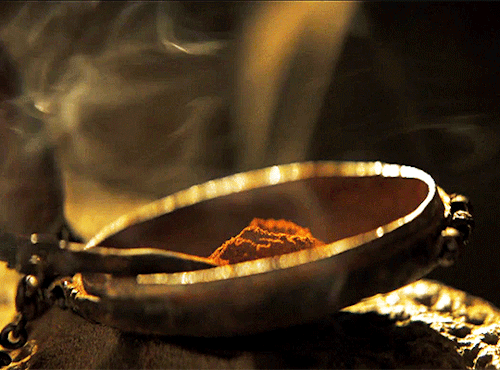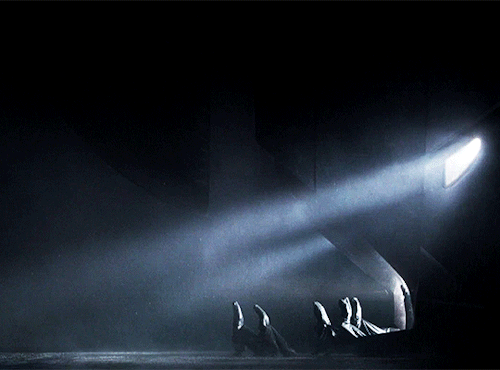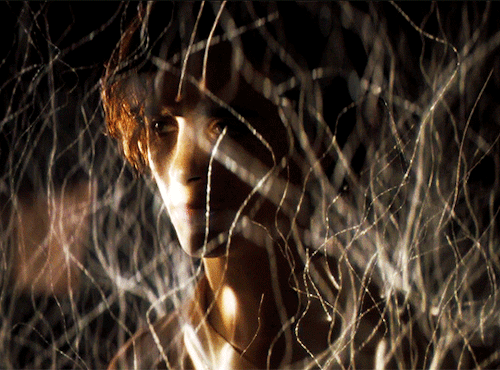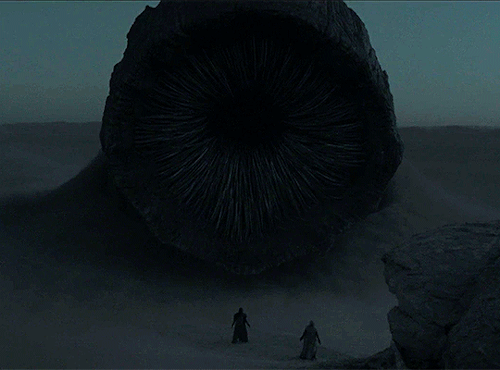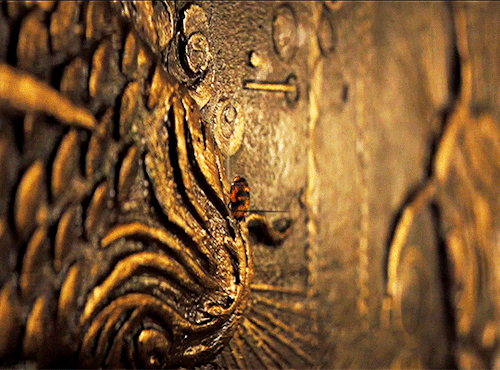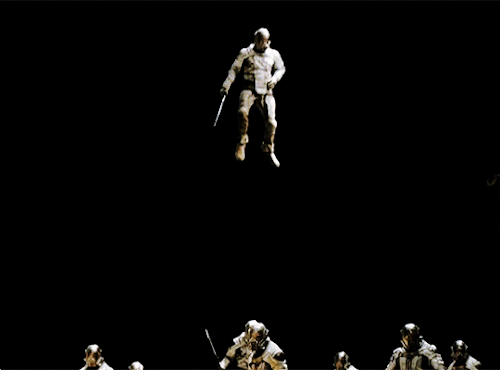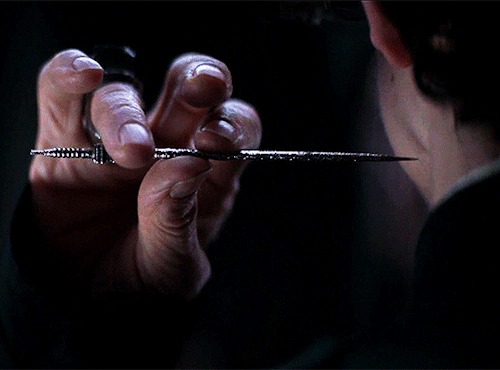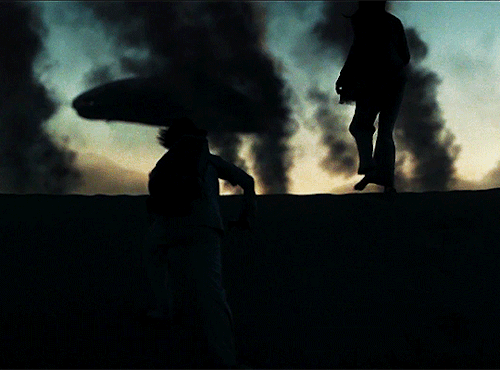Frank Herbert // Dune Messiah

frank herbert // dune messiah
More Posts from Mariefenring and Others


Der Wanderer über dem Nebelmeer (1818) - Caspar David Friedrich // Paul Atreides on Caladan - Dune (2021) dir. Denis Villeneuve
The Villeneuve Dune(s) can be broadly interpreted as one of the two possible futures Paul sees in the original novel
Spoilers below for Dune Part Two. (And for the original novel, but that's been out since the 60s.)
He had seen two main branchings along the way ahead--in one he confronted an evil old Baron and said: "Hello, Grandfather." The thought of that path and what lay along it sickened him.
The other path held long patches of grey obscurity except for peaks of violence. He had seen a warrior religion there, a fire spreading across the universe with the Atreides green and black banner waving at the head of fanatic legions drunk on spice liquor. Gurney Halleck and a few others of his father's men--a pitiful few--were among them, all marked by the hawk symbol from the shrine of his father's skull.
"I can't go that way," he muttered. "That's what the old witches of your schools really want."
Obviously the Doylist explanation for why there are differences in the new films is that the original book is 60+ years old and has certain elements no longer in cultural vogue that were adapted out or altered to better fit modern sensibilities, and I'm all for that. But I did find it interesting that there is an explicit moment at the end of Part 2 where Paul confronts the Baron, utters the "Hello, Grandfather," line, and kills him.
This isn't necessarily because there is any one choice that Paul makes throughout the course of the two movies that leads here instead of to the jihad. In point of fact, most of the changes that drive him here are caused by choices made in the adaptations of the films.
The causal chain that leads to Paul undertaking the spice agony is his failure to predict the attack on Sietch Tabr, rather than his failure to predict Gurney's attack on Jessica; this is, of course, necessitated by the omission of the Harkonnen scheme in part 1 to impair Thufir's Mentat efficiency and potentially drive a wedge between Leto and Jessica by framing Jessica as the traitor. The final push that causes him to make the decision is, of course, the vision he experiences of an alternate future in which he didn't have to kill Jamis, with Jamis counseling him to climb as high as possible before the hunt so he can see as far as possible. (In other words, he ignores Stilgar's advice of not listening to the djinn.)
Similarly, his killing of the Baron is necessitated by the adaptational choice to keep Alia as a fetus so the audience doesn't have to deal with a two-year-old talking like an adult and killing the Baron, which they probably did because it would have been distracting.
However, I might argue that a Watsonian explanation for the film omitting the two-year time-jump lies specifically with Paul's decision to explicitly disavow the prophecy when Jessica undergoes the spice agony, and to explain to the Fremen that her survival is because of her Bene Gesserit training. He then attempts to secure his position with the Fremen through secular deeds, rather than letting Jessica carve a place for them with the BG prophesy.
This disagreement between the two of them causes her in turn to take a more active approach in cultivating Paul's status as Lisan al-Gaib, which accelerates the timeline of the Fremen being ready to submit to him. In turn, Paul focusing more strongly on guerrilla war against the Harkonnens accelerates the timeline of Feyd-Rautha being put in charge of Arrakis and cracking down hard in the north, leading to the aforementioned crisis point of Sietch Tabr being attacked without Paul's foreknowledge.
Notably, while we do see the shrine of Leto's skull in the film, we only see it in a vision; there is no moment in the movie where Paul explicitly finds his father's remains and enshrines them. Hence, going from a strict interpretation of the film's "text," this is not the future in which the legions are marked by the shrine, because the shrine doesn't exist. It is the other future. The compression of time means that Paul and Chani's relationship is much newer and more fragile and doesn't survive the strain of his apotheosis, and that's what sickens him most.
Of course, the "Hello, Grandfather" path also leads to the jihad, because Paul's tragedy is that his very existence was always going to lead to it, regardless of what he chose to do.
And Paul saw how futile were any efforts of his to change any smallest bit of this. He had thought to oppose the jihad within himself, but the jihad would be. His legions would rage out from Arrakis even without him. They needed only the legend he already had become. He had shown them the way, given them mastery even over the Guild which must have the spice to exist.
Obviously none of this passes explicit, close scrutiny, and is more of a fun "if you squint and look at it a certain way it kind of makes sense." I expect that the line was put in as a nod to the original book, no more or less, but making up head-canons like this is fun for me and if even one other person finds it edifying then I consider sharing it time well spent!
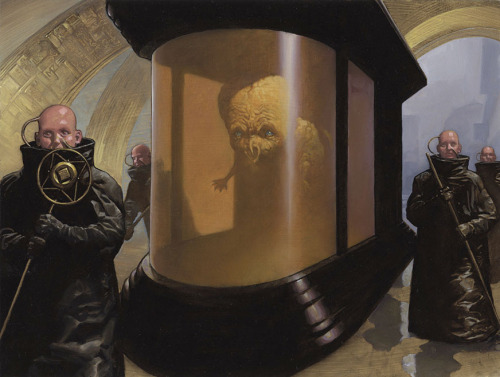
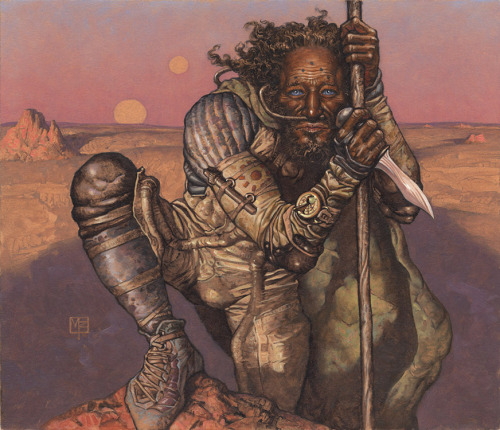
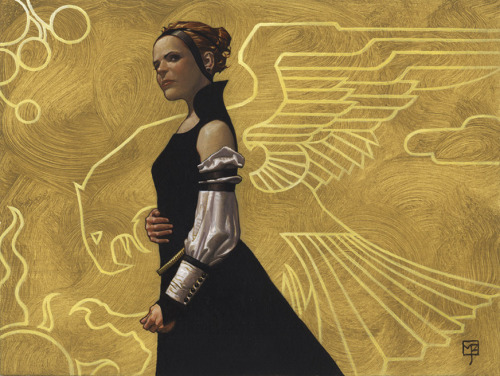
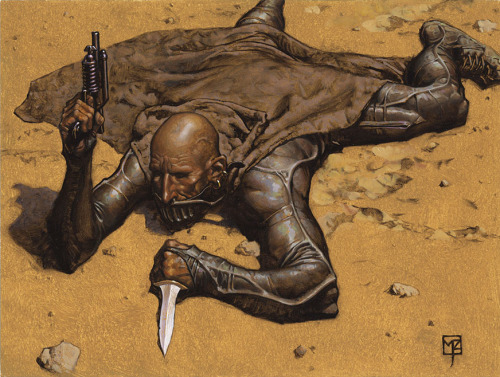
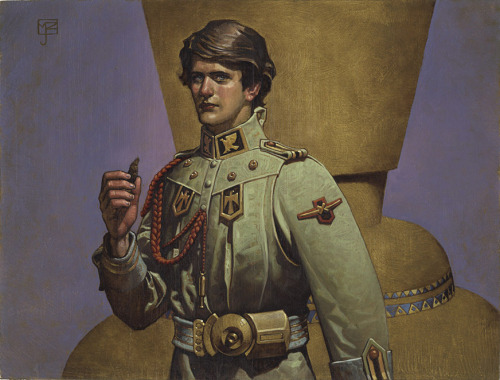
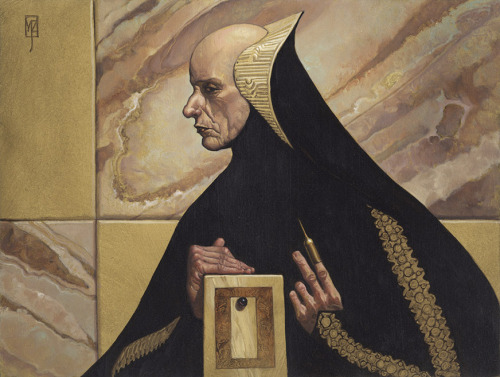
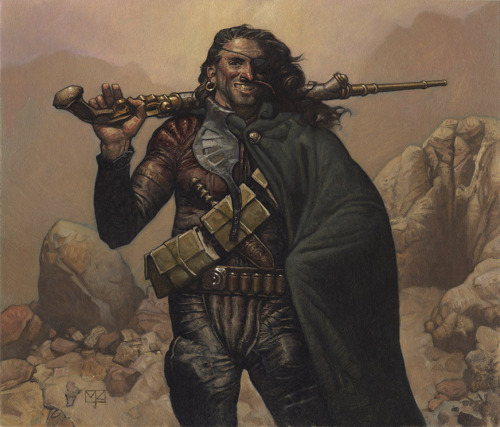
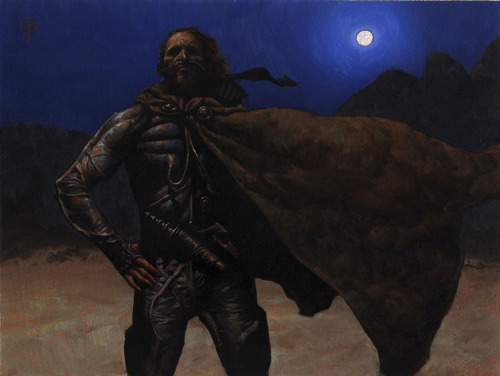
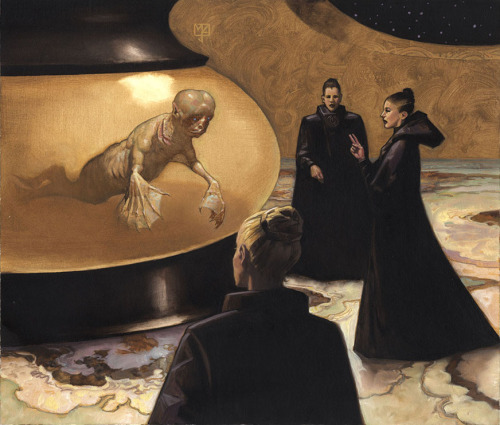
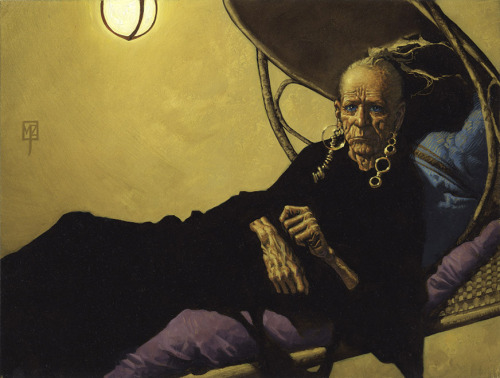
In 1997, Last Unicorn gave Zug the chance at recreating Frank Herbert’s ‘Dune’ through a new trading card series. He was originally told to base his work off of David Lynch’s film, but after complications with licensing, “they told me to avoid similarity to Lynch’s visuals” says Mark Zug.
Click here to see the rest.
I'm rereading Dune in honour of the movie, and I had genuinely forgotten how absolutely vicious Leto's wit can be. Two examples:
Halleck stirred, said: "I think what rankles, Sire, is that we've had no volunteers from the other Great Houses. They address you as "Leto the Just" and promise eternal friendship, but only as long as it doesn't cost them anything."
"They don't yet know who's going to win this exchange," the Duke said. "Most of the Houses have grown fat by taking few risks. One cannot truly blame them for this; one can only despise them."
Pretty sure some of the heads of other houses just woke up several planetary systems away in a cold sweat, with the vague feeling of just having been verbally flayed.
"This is a carryall," Hawat said. "It's essentially a large 'thopter, whose sole function is to deliver a factory to spice-rich sands, then to rescue the factory when a sand-worm appears. They always appear. Harvesting the spice is a process of getting in and getting out with as much as possible."
"Admirably suited to Harkonnen morality," the Duke said.
I think the Baron is beyond feeling someone else roasting him from a system away, as it happens far too often, but still.
Finally, a gentler example:
"Gurney, take care of that smuggler situation first."
" 'I shall go unto the rebellious that dwell in the dry land,' " Halleck intoned.
"Someday I'll catch that man without a quotation and he'll look undressed," the Duke said.
I wish we'd had time to see this in the movie, because even though a fair amount of this is him putting on a bit of a show for his men, it's still hilarious.

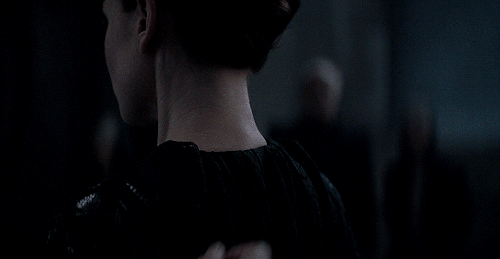
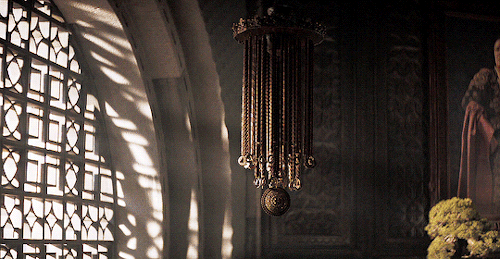
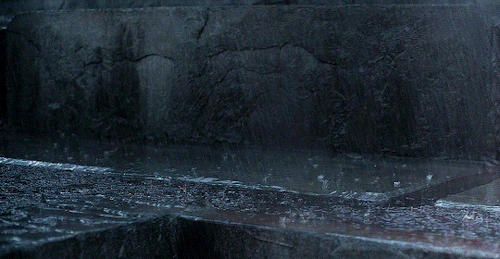
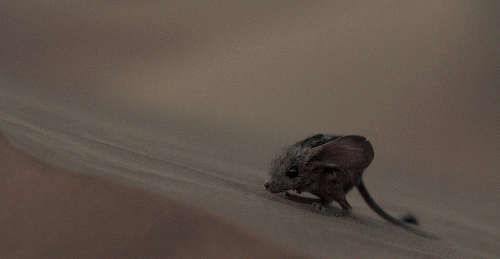

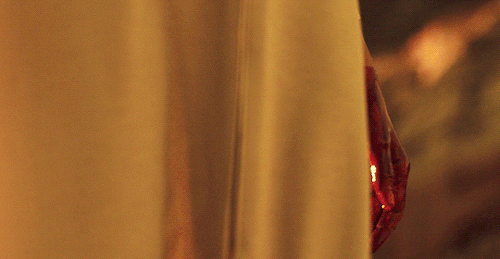
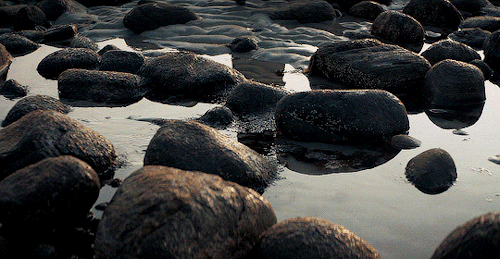


My lungs taste the air of Time, Blown past falling sand…
DUNE (2021) | dir. Denis Villeneuve
As the release of DUNE looms, I find myself thinking deep thoughts about the story again. When people who haven't read it ask me about it, I usually say something along the lines of, "It's an extremely important work in the sci-fi genre, on the level of Lord of the Rings for fantasy, amazing worldbuilding, but it's very dry and the author was a white man in the sixties." Well, it occurs to me that "white man in the sixties" can mean a lot of things, so let's talk more about what it means for Dune!
I see two common criticisms leveled at Dune. The charge of biological essentialism, and the charge of it being a white savior narrative. It is not a white savior narrative, and I'll explain why below. The charge of biological essentialism is accurate, and I'll go into that more as well.
Without getting too spoiler-heavy, the plot of Dune is that Paul Atreides, heir to Duke Leto Atreides, moves to the planet Arrakis when the Emperor awards the planet to House Atreides in fief complete. Basically, the universe in Dune is space feudalism, and House Atreides is one of many noble houses engaged in feudal government. When Paul shows up, the local, oppressed populace, the Fremen, think he's a foretold, prophesied "chosen one," here to lead them out of bondage. Then House Atreides gets betrayed and mostly destroyed, Paul goes into hiding with the locals, and eventually uses them to overthrow his enemies and take back the planet, as well as leveraging the planet's strategic importance and his control of it to place himself on the Emperor's throne.
So, on the surface, definitely white savior stuff. But even a slightly deeper reading, an analysis designed to actually interrogate the text and not just generate a pithy headline to garner outraged clicks, will tell us that this isn't accurate. For one, Paul is a chosen one, but he's not the Fremen's. He is the product of a millennia-long scheme by a shadowy cabal of mystics called the Bene Gesserit to breed a superhuman. We'll get into this more in the biological essentialism bit, but the Bene Gesserit have infiltrated all walks of life throughout the future. They have a branch called the Missionaria Protectiva, which sends operatives to primitive worlds in the guise of religious prophets and has them plant broadly-worded, easily exploitable prophecies and beliefs in local populations. Then, later, if another Bene Gesserit operative shows up and needs, say, an army of religious fanatics, they say the right words and present someone who fits the broad criteria and boom, you have a chosen one.
This is exactly what happens in the book. Paul's mother Jessica is a Bene Gesserit member, and when they go into hiding, she exploits the fact that a Manipulator of Religions has been on Arrakis to maneuver Paul into position as the Fremen's chosen one. Paul himself is trying to resist embracing the mantle, because he knows that if he leans fully into it the Fremen will go on a wild crusade across the universe and burn everything down in his name. At the end of the novel, he realizes that the jihad is inevitable, that there was no way at all to stop it - even if he had killed himself, he would have become a holy martyr. A certain Fremen character, dying out in the desert, hallucinates his father, who tells him, "No more terrible disaster could befall your people than for them to fall into the hands of a Hero." This is Herbert telling us on the page, in a scene that matters very little to the overall plot, that Paul's very presence on this planet, his status as the Fremen savior, is a terrible tragedy. We are supposed to sympathize with Paul because all of his enemies are categorically worse than he is, but this is not a book about Good People Doing Good Things. Paul is an oppressor, a feudal duke, a tyrant. His story is a *warning.*
Now, where the book gets very sticky: the biological essentialism. I'll quote the OED here: "The belief that ‘human nature’, an individual's personality, or some specific quality (such as intelligence, creativity, homosexuality, masculinity, femininity, or a male propensity to aggression) is an innate and natural ‘essence’ (rather than a product of circumstances, upbringing, and culture)."
In Dune, men and women are biologically distinct on a fundamental, universal level. The aforementioned Bene Gesserit are an order of women. Using the spice (which must flow), they can look backward in their body's genetic memory along matrilineal lines, becoming essentially gestalt consciousnesses of thousands of people. One of their order's chief goals is to create the Kwisatz Haderach, a man who can look back in his body's memory in the same way, but can do so along both male and female lines. There is a scene in the book where Paul explains it - to summarize, in everyone there is a place that takes and a place that gives. Women can look into the giving place, but are terrified of the taking place. Paul, once he has reached apotheosis as the Kwisastz Haderach, can look into both places.
There's a lot of other hoo-hah about men and women having different dispositions - Duke Leto at one point asks Jessica how she can so easily set aside her concerns and distractions, and she says "It's a female thing." When Jessica becomes a Reverend Mother, looking back into her body's memory, she's pregnant with her daughter Alia. Alia also becomes a Reverend Mother in the same instant, before she's even born, and it's made explicit that if she had been a male embryo (because she is less than two months gestated at this point!) she would have died.
This is what people are talking about when they say that an author's world view shapes their work. Herbert was writing in the sixties. Biological sex and gender were not understood to be separate concepts. The Nazis had destroyed the vast majority of all scholarly research into transgender people, since most of it had been done at a university in Germany. Homosexuality was still illegal (reflected in the book's main antagonist, Baron Harkonnen, who is a homosexual pedophile, and in 'effeminacy' being a damning trait in male characters in the book). I'm not saying these things to excuse the fact that he wasn't progressive in his views. I'm saying this because his views and understanding of the world around him literally shape the laws of his universe. In Herbert's mind, men and women were fundamentally distinct, and so in the universe of Dune, they are.
I'm interested in seeing how the film addresses these issues - whether it chooses to just kind of ignore them and hope we don't notice, or if it's going to try to update these archaic notions for modern sensibilities. Dune is a seminal piece of worldbuilding - Herbert's realization of this universe, its eddies and flows of power, the way the entire society is structured around the consumption of spice, the understanding he demonstrated of the feudal system in his translation of it to a far-flung future, and indeed, I maintain, Herbert's multi-layered criticism of the white savior trope - it's all undermined by the fact that the structure of the world itself reflects unfortunate, backward, biological essentialist thinking that we as modern people can no longer engage in.
Anyway that was a very long ramble. If you actually read all this, you're a beautiful, patient soul. :v








“I must not fear. Fear is the mind-killer. Fear is the little death that brings total obliteration. I will face my fear. I will permit it to pass over me and through me. And when my fear is gone I will turn and face fear’s path, and only I will remain.” | Dune (1984)
-
 mariefenring reblogged this · 1 year ago
mariefenring reblogged this · 1 year ago -
 let-it-be192 liked this · 3 years ago
let-it-be192 liked this · 3 years ago -
 lady-of-paranoia liked this · 3 years ago
lady-of-paranoia liked this · 3 years ago -
 lucy-moderatz reblogged this · 3 years ago
lucy-moderatz reblogged this · 3 years ago -
 noahvincent33 liked this · 4 years ago
noahvincent33 liked this · 4 years ago -
 technicolordreamcloth reblogged this · 5 years ago
technicolordreamcloth reblogged this · 5 years ago -
 wholesomedarling liked this · 5 years ago
wholesomedarling liked this · 5 years ago -
 etspera liked this · 5 years ago
etspera liked this · 5 years ago -
 wrmtail liked this · 5 years ago
wrmtail liked this · 5 years ago -
 oxfordsonnets liked this · 5 years ago
oxfordsonnets liked this · 5 years ago -
 tenderpr3y reblogged this · 5 years ago
tenderpr3y reblogged this · 5 years ago -
 grim-adventure liked this · 5 years ago
grim-adventure liked this · 5 years ago -
 haetshepsut liked this · 5 years ago
haetshepsut liked this · 5 years ago -
 tomswambsgan liked this · 5 years ago
tomswambsgan liked this · 5 years ago -
 taxontaxoff liked this · 5 years ago
taxontaxoff liked this · 5 years ago -
 ssunshinesadness liked this · 5 years ago
ssunshinesadness liked this · 5 years ago -
 vxnians reblogged this · 5 years ago
vxnians reblogged this · 5 years ago -
 dreamingnebula liked this · 5 years ago
dreamingnebula liked this · 5 years ago -
 mindovermxtter liked this · 5 years ago
mindovermxtter liked this · 5 years ago -
 lukalunar liked this · 5 years ago
lukalunar liked this · 5 years ago -
 podmore liked this · 5 years ago
podmore liked this · 5 years ago -
 paganvamp liked this · 5 years ago
paganvamp liked this · 5 years ago -
 clownfluid liked this · 5 years ago
clownfluid liked this · 5 years ago -
 jennathearcher liked this · 5 years ago
jennathearcher liked this · 5 years ago -
 lemongrass-eyelids reblogged this · 5 years ago
lemongrass-eyelids reblogged this · 5 years ago -
 orphanofkos liked this · 5 years ago
orphanofkos liked this · 5 years ago -
 traveladventureimagine reblogged this · 5 years ago
traveladventureimagine reblogged this · 5 years ago -
 onbackroads reblogged this · 5 years ago
onbackroads reblogged this · 5 years ago -
 professorerudite liked this · 5 years ago
professorerudite liked this · 5 years ago -
 alicetalon liked this · 5 years ago
alicetalon liked this · 5 years ago -
 condescendingtoews liked this · 5 years ago
condescendingtoews liked this · 5 years ago -
 crescentsun liked this · 5 years ago
crescentsun liked this · 5 years ago -
 gryphonnn liked this · 5 years ago
gryphonnn liked this · 5 years ago -
 inspriting reblogged this · 5 years ago
inspriting reblogged this · 5 years ago -
 aphollos liked this · 5 years ago
aphollos liked this · 5 years ago -
 wulfhalls reblogged this · 5 years ago
wulfhalls reblogged this · 5 years ago

ERIS. a dune sideblog. SEMI-HIATUS.ask me about my alia x marie agenda. analysisabout/tagsmetaaskboxhome
183 posts

